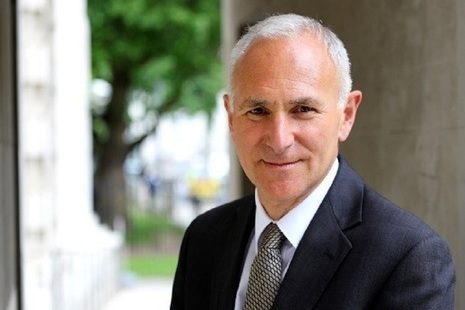
Spending other people’s money can be quite stressful – speak to anyone who has ever organised a hen do or booked a group holiday. So perhaps it’s no wonder that Rachel Reeves has decided to appoint someone to make sure the haul of taxes she’s raking in after the biggest Budget in recent history is spent well.
It makes complete sense. Every friendship group has a head of value for money – typically the one who knows how to find a bargain.
The thing is, not everyone is cut out for the job. The friend who orders expensive wine then never pays their share when the bill arrives, for example? Probably not the strongest bet.
So the Chancellor’s pick for the first ever independent chair of the Office for Value for Money, David Goldstone, has raised a few eyebrows across Whitehall.
Goldstone will be responsible for “root[ing] out waste and inefficiency, undertaking value for money studies in specific high-risk areas of cross-departmental spending, and scrutinising investment proposals to ensure they offer value for money”, according to the press release announcing his appointment yesterday.
The problem? Mr Goldstone sits on the board of HS2 – the cross-country rail project which is wildly over budget and already much scaled back. It has been criticised for spiralling construction costs and poor value for money after it went far beyond its original £55bn budget without any sign of ever being fully delivered. The current estimate is that over £100bn will be spent.
Before that, Goldstone was chief executive of the Houses of Parliament Restoration and Renewal Delivery Authority, tasked with ensuring Westminster doesn’t sink into the River Thames or burn to the ground.
Here he was criticised by Dame Meg Hillier, Labour MP and former chair of the Public Accounts Committee, after he received a £168,000 bonus on top of his £300,000-plus annual salary despite the project being both £7bn over budget and hugely delayed.
Before that he worked on the Government’s plan for the 2012 Olympic and Paralympic games, including the venues. Which – you guessed it – was massively over budget.
When asked about his suitability for the role, Government sources pointed to his CV and the high-profile jobs he has undertaken over the years. He will be in post for a year until October 2025 and will have a team of 20 staff to help police spending, working one day per week on a rate of £950.
Yet in so many of Goldstone’s previous roles there are concerns about overspend and waste. Indeed, critics have warned that hiring extra staff to oversee spending is a waste of money in itself.
Reeves has increased taxes by more than any other chancellor in recent history. For context, Gordon Brown’s first Budget raised £14bn and George Osborne’s £13bn. Those were seen at the time as large increases – so £40bn is worlds away. Making sure the money is well spent will be essential to rebuilding both trust in politics and growth to the UK economy.
And there’s plenty to be getting on with. During a regular meeting between the Mayor of Greater Manchester and Northern Rail officials this week, Andy Burnham could barely contain his incredulity after he heard that rail bosses are still using fax machines to communicate with staff because of an old agreement with trade unions (a claim unions have disputed).
Quizzed on why Northern – nationalised in 2020 and in receipt of hundreds of millions of pounds of taxpayer cash – couldn’t simply switch to email, the boss admitted that changing the agreement would require fresh talks with unions. The implication that unions are reluctant to make the change was left to hang in the air.
This is a good example of what some critics fear most about Rachel Reeves’s tax plans. Alongside much higher borrowing, the costs of repaying it and the minimal impact on growth as per the Office for Budget Responsibility’s calculations, many fear waste and inefficiency could render the investment far less revolutionary than the Government intends.
With the pressure of an ageing population and rising demand for public services after years of underinvestment, plus stilted growth which doesn’t look like it’s changing any time soon, spending taxpayer’s hard-earned cash well will become even more essential than ever for this Government.
Mr Goldstone has a multi-billion pound job on his hands to keep it all on track.
